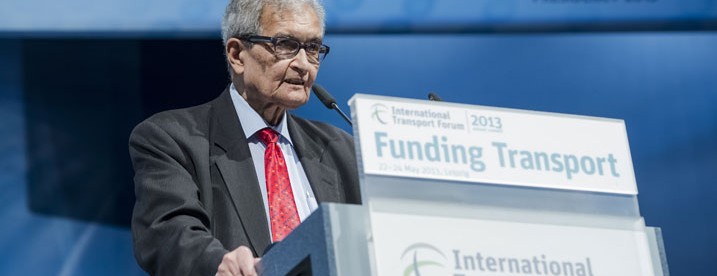A recent Global Financial Integrity study concluded that measurable illicit financial outflows topped the $1 trillion mark in 2013. The inclusion of illicit financial flows (IFFs) in the Sustainable Development Goals was an affirmation of the detrimental impact these flows have on the development of low income countries. Amongst the most keenly affected are children, who lose out on quality education due to insufficient government funding. I was able to witness just this, when I spent the 2013 academic year at a village school just outside the city of Zomba, Malawi, a country that GFI estimates loses on average US$650 million per year in illicit outflows.

On February 1st through 2nd, I and other youth representatives from around the world met at the UN’s ECOSOC Youth Forum to discuss how we can actively influence the implementation of the recently adopted Sustainable Development Goals (SDGs). A highlight of the event was a speech by Mr. Ahmad Alhendawi, the UN Secretary-General’s Special Envoy on Youth, who argued for his “Ten Myths about Youth,” in which he asserted that youth are not the future, seeing as we comprise so much of the world today and are directly and immediately affected by any decisions that take place. Youth are as much the present as any other group in society—participating youth repeatedly expressed their concerns about the current lack of employment opportunities (in advanced and developing economies alike). High levels of youth unemployment are correlated with major losses in human capital development, income and employment stability, and aggregate economic gains.

For over a decade now, various global initiatives have promoted the design and implementation of international standards for governments and companies in the extractive sector to publish detailed information about their output and revenues. In 2002, after major corruption scandals emerged in Angola, Publish What You Pay (PWYP; a global coalition of civil society organizations) demanded oil, gas and mining companies to publish what they paid governments.
By Dev Kar, January 22, 2016
Several recent studies have indicated that capital flight (defined as outflows of licit and illicit capital from developing countries) has serious consequences for economic performance and well-being. For example, a 2012 IMF study based on a panel regression of 103 developing countries over 2001-07, found that country-specific factors such as institutional quality and domestic credit markets have little impact on a country’s ability to translate capital inflows into domestic investment.
By Joseph Spanjers, December 15, 2015
This reflects a refinement in how we calculated our estimates for 37 countries, including major emerging economies like Mexico, South Africa, and Turkey. These countries join 19 others for which we were able to use more detailed data to capture how much money flowed out illicitly. As a result, our estimate for 2013 was a total outflow of a staggering US$1.1 trillion—and the world actually crossed this trillion mark in 2011.
By Christine Clough, PMP, October 26, 2015
When the States Parties to the UN Convention against Corruption (UNCAC) and official observers gather in St Petersburg next week for the 6th Conference of States Parties (COSP), the UNCAC Coalition will be advocating for enhanced language...
By Christine Clough, PMP, September 1, 2015

Flight Capital and Illicit Financial Flows to and from Myanmar: 1960-2013
Please join Global Financial Integrity (GFI) for a panel discussion on Thursday, September 10 at the National Press Club in Washington, DC. Based on a forthcoming report by GFI, the panel will discuss the dynamics of illicit financial flows (IFFs) and economic opacity in Myanmar since 1960, and the economic ramifications these trends have had and continue to have on the country’s development.
The panel will include:
Dev Kar
Chief Economist
Global Financial Integrity
Vikram Nehru
Senior Associate, Asia Program
Bakrie Chair in Southeast Asia Studies
Carnegie Endowment for International Peace
Aaretti Siitonen
First Secretary
Embassy of Finland
And will be moderated by:
Tom Cardamone
Managing Director
Global Financial Integrity
By Sophie Haggerty, August 6, 2015

Academics Stand Against Poverty, the Yale Global Justice Program, and Global Financial Integrity invite submissions of original essays of ca. 7,000 to 9,000 words on the intelligent use of incentives toward curtailing corporations’ use of tax evasion and avoidance, abusive transfer pricing and all forms of illicit financial flows. All prizes are named in honor of Amartya Sen, whose work has shown how the rigor of economic thinking can be brought to bear on normative and practical questions of great human significance. For more details, please see the contest web page.




